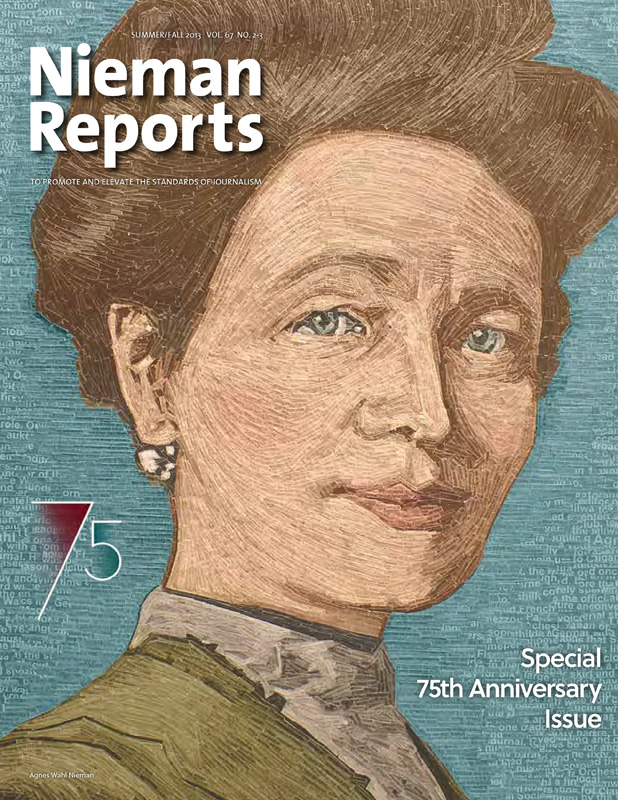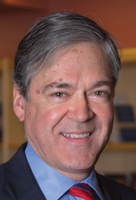John Harwood is chief Washington correspondent of CNBC and a political writer for The New York Times
 My small Nieman moments began long before I set foot in Cambridge in late summer of 1989. I had been conceived during the Nieman of my father, Richard Harwood (1925–2001), NF ’56. As a child I used to wonder where that black wooden armchair with the “VE-RI-TAS” logo came from … Later, I’d thumb through the issues of Nieman Reports that showed up in the mail from time to time. In college, I read the notes Dad had typed at night and saved in a binder, from the lectures on America’s westward expansion he heard from Frederick Merk, who had studied under Frederick Jackson Turner and was in the final year of more than three decades teaching history at Harvard.
My small Nieman moments began long before I set foot in Cambridge in late summer of 1989. I had been conceived during the Nieman of my father, Richard Harwood (1925–2001), NF ’56. As a child I used to wonder where that black wooden armchair with the “VE-RI-TAS” logo came from … Later, I’d thumb through the issues of Nieman Reports that showed up in the mail from time to time. In college, I read the notes Dad had typed at night and saved in a binder, from the lectures on America’s westward expansion he heard from Frederick Merk, who had studied under Frederick Jackson Turner and was in the final year of more than three decades teaching history at Harvard.
But, as it should be, my big Nieman moment came during my own Fellowship year. Specifically, it came in January 1990 when I walked into William James Hall, just a block from Lippmann House, to listen to the great Harvard psychologist Jerome Kagan. Our first daughter had been born in October, and I decided to try his seminar on the early development of children. He was breathtakingly wise and literate—mesmerizing, actually.
For the next few months, professor Kagan ranged through history and philosophy and neurological science to puncture common assumptions about the relative roles of nature and nurture. And he gave me a gift that I’ve kept opening ever since: a reminder from another discipline of the need to consider every angle in assessing truth. That is, remember not just the context in which an event takes place, but the nature of the evidence that’s available or is not, and the nature of the inquiry yielding that evidence. He stamped upon my brain the value of a deeper and richer search for understanding. It has never left me.
I’ve tried to bring that quality to my coverage of politics and government. On 9/11, when the attacks had disabled The Wall Street Journal headquarters in New York and we were directing the news report from the Washington bureau, I called him when I was asked to contribute to a story about the effects of that terrible day on the nation’s psyche. He offered invaluable perspective on the sorts of effects that would last, and those that would not. Our coverage that day won a Pulitzer for the entire WSJ staff.
My Nieman year contained thousands of wonderful moments. But if there had been nothing but my 90 minutes each week with Jerome Kagan, that would have been enough.



